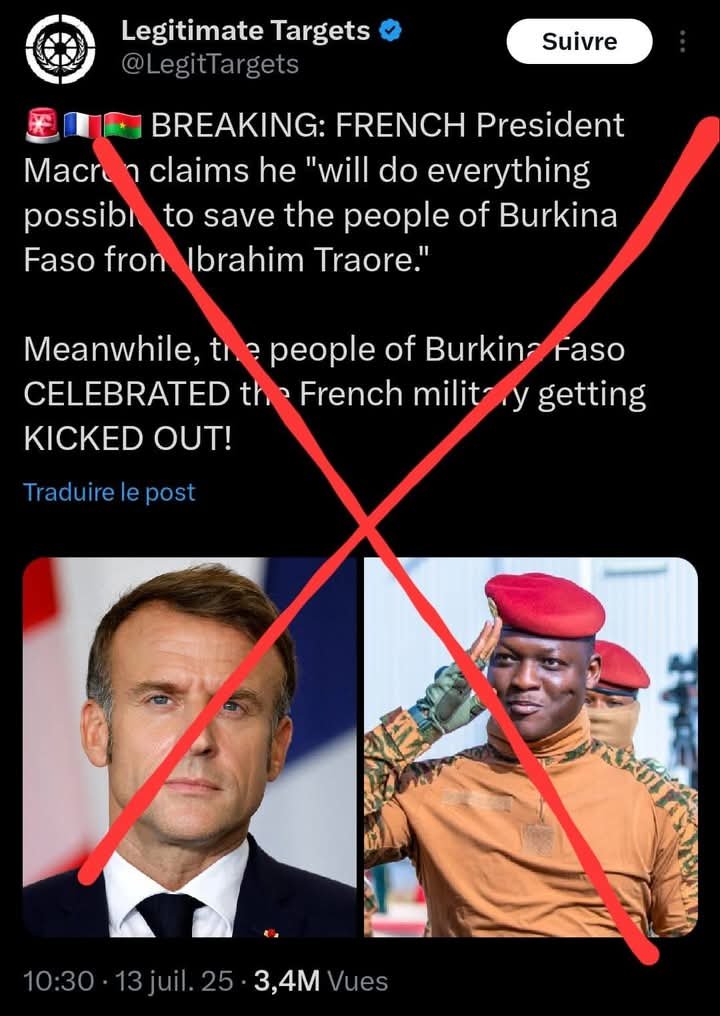Introductory Commentary
Since military regimes took hold across much of the Sahel region—alongside increasing Russian influence—the information landscape has become a battleground dominated by propaganda, disinformation, and strategic misinformation.
Leveraging deepening anti-French and broader anti-Western sentiments, these juntas and their sympathisers have deployed disinformation as a potent tool to delegitimize Western actors, democratic voices, and dissenting groups. This tactic has found fertile ground, especially among disillusioned youth who feel betrayed by decades of corrupt leadership, often perceived as propped up by the West.
In this volatile context, misinformation and fabricated narratives are easily sold. The result is a growing tide of popular support for military regimes, even as insecurity and poor governance worsen. The narrative conveniently shifts attention away from domestic failures—particularly the inability to improve safety or development—and onto an external “enemy” said to be working against African sovereignty.
Beyond France and the United States—the primary targets of these campaigns—governments in neighboring countries perceived to be aligned with the West are not spared. A recent example involves Nigeria, which was forced to issue clarifications and debunk false allegations from the Nigerien junta accusing Abuja, in collaboration with France, of attempting to overthrow its government.
Disinformation has become so normalized that unverified statements, fabricated quotes, and misleading headlines now circulate widely on social media, often attributed to Western leaders threatening invasion or regime change in the Sahel. These claims are rarely questioned by consumers of such content.
One of the more disturbing examples is a tweet by Jackson Hinkle, a known American far-right propagandist, who posted on the account “Legitimate Targets” a sensational and unverified quote allegedly from French President Emmanuel Macron. It claimed Macron vowed to “do everything possible to save the people of Burkina Faso from Ibrahim Traore.” The tweet went viral, attracting over 2,500 comments, 12,000 reposts, and nearly 100,000 likes—despite no credible verification of the claim.
This trend reflects a dangerous erosion of information integrity. Many readers, particularly in conflict-affected and politically unstable contexts, are consuming and spreading such content without questioning its origin or truthfulness. Disinformation becomes truth by repetition, while critical thinking is eroded.
While calls for genuine African emancipation and sovereignty are legitimate and necessary, they must not be rooted in falsehoods or manipulation. Trading one form of external control for another—be it from the West or East—undermines the very notion of self-determination.
What the region needs is not disinformation-fueled populism or militarized governance masquerading as patriotism. It needs transparent, accountable, people-centered democratic leadership that puts the interests of Africans first, free from external meddling or ideological manipulation.
Only then can true sovereignty, security, and development take root in the Sahel—and across the continent.

